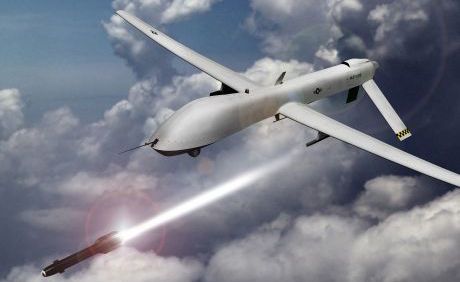Features
You are here
Yemen: US drones vs democracy

January 30, 2013
"A decade of war is now ending," proclaimed President Obama in his second inaugural address. Those words seem awkward with the escalating drone attacks and other Western interventions. A decade ago the anti-war movement mobilized people against the Bush agenda and catapulted Obama into presidency on the promise to undo the pro-war agenda. Obama promised to end the war in Iraq, and one of his first acts was to sign papers and made plans to shut down Guantanamo Bay. But today Guantanamo is still open, there are still US bases in Iraq, and Obama has done more to expand America's imperial position--sending more troops to Afghanistan, supporting Israel, bombing Libya, sending troops to Uganda, and spreading drone attacks from Pakistan to Yemen.
Drones = counter-revolution
As part of the Arab Spring, the people of Yemen drove out the US-backed dictator Ali Abdullah Saleh in 2011; after fleeing to US-backed Saudi Arabia, Saleh received royal treatment in the US at the Ritz Carlton. Meanwhile, Saudi and Western "Friends of Yemen" imposed a "transition plan" maintaining Saleh's regime, installing his vice president Abd al-Rab Mansour al-Hadi as president and pledging $4 billion in support.
This political and economic counter-revolution has accompanied military intervention in the form of drone strikes. Drones are justified as "counter-terrorism" against the Al-Qaeda insurgency, which has had a presence for more than 20 years, and drone strikes are portayed as a more accurate use of force--supposedly directed only against militant groups. But in reality drone strikes have led to the deaths of countless civilians, many of them children.
Despite the CIA's denial of the drone programs existence, it is hard to reject it's presence when the man referred to as "Mr. Drone", John Brennan, has just been appointed as the head of the CIA. With Brennan at the helm and being a strong supporter of the use of drones, the attacks on Yemen and other countries will increase exponentially--resulting in the deaths of unarmed civilians from direct strikes, and widespread fear and anxiety from merely the sound of drones flying over Yemeni airspace.
According to Amnesty International a new "manual" of sorts to create policy on the "legitimacy" and use of drone strikes is being created by the Obama administration. But International law clearly states that what the US has been doing is violation after violation of said law. The reforms on paper will not likely lead to reforms in the air.
Ongoing struggle
The struggle for freedom and democracy in Yemen continues despite the change in the regime. The demands of pro-democracy protestors who ousted Saleh have not been met as instability, poverty, and Western intervention continue. Putting an end to US drone strikes in Yemen will help revolutionaries achieve their goals in establishing a true democracy.
Section:
Topics:










